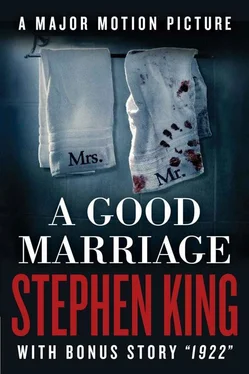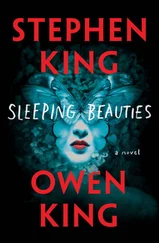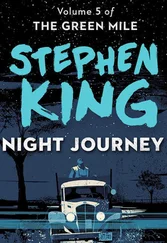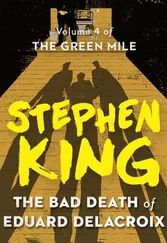“No need to. A banker’s office, the priest’s confessional—very little difference. The best men in this county have sat in that chair, Wilf. The very best.”
“But I only came in for a shortie loan—which you have kindly granted—and this new proposal needs a little thinking about.” A new idea occurred to me, one that was surprisingly pleasant. “And I ought to talk it over with my boy, Henry—Hank, as he likes to be called now. He’s getting to an age where he needs to be consulted, because what I’ve got will be his someday.”
“Understood, completely understood. But it’s the right thing to do, believe me.” He got to his feet and stuck out his hand. I got to mine and shook it. “You came in here to buy a fish, Wilf. I’m offering to sell you a pole. Much better deal.”
“Thank you.” And, leaving the bank, I thought: I’ll talk it over with my son. It was a good thought. A warm thought in a heart that had been chilly for months.
* * *
The mind is a funny thing, isn’t it? Preoccupied as I was by Mr. Stoppenhauser’s unsolicited offer of a mortgage, I never noticed that the vehicle I’d come in had been replaced by the one Henry had taken to school. I’m not sure I would have noticed right away even if I’d had less weighty matters on my mind. They were both familiar to me, after all; they were both mine. I only realized when I was leaning in to get the crank and saw a folded piece of paper, held down by a rock, on the driving seat.
I just stood there for a moment, half in and half out of the T, one hand on the side of the cab, the other reaching under the seat, which was where we kept the crank. I suppose I knew why Henry had left school and made this swap even before I pulled his note from beneath the makeshift paperweight and unfolded it. The truck was more reliable on a long trip. A trip to Omaha, for instance.
Poppa,
I have taken the truck. I guess you know where I am going. Leave me alone. I know you can send Sheriff Jones after me to bring me back, but if you do I will tell everything. You might think I’d change my mind because I am “just a kid,” BUT I WONT. Without Shan I dont care about nothing. I love you Poppa even if I don’t know why, since everything we did has brought me mizzery.
Your Loving Son, Henry “Hank” James
I drove back to the farm in a daze. I think some people waved to me—I think even Sallie Cotterie, who was minding the Cotteries’ roadside vegetable stand, waved to me—and I probably waved back, but I’ve no memory of doing so. For the first time since Sheriff Jones had come out to the farm, asking his cheerful, no-answers-needed questions and looking at everything with his cold inquisitive eyes, the electric chair seemed like a real possibility to me, so real I could almost feel the buckles on my skin as the leather straps were tightened on my wrists and above my elbows.
He would be caught whether I kept my mouth shut or not. That seemed inevitable to me. He had no money, not even six bits to fill the truck’s gas tank, so he’d be walking long before he even got to Elkhorn. If he managed to steal some gas, he’d be caught when he approached the place where she was now living (Henry assumed as a prisoner; it had never crossed his unfinished mind that she might be a willing guest). Surely Harlan had given the person in charge—Sister Camilla—Henry’s description. Even if he hadn’t considered the possibility of the outraged swain making an appearance at the site of his lady-love’s durance vile, Sister Camilla would have. In her business, she had surely dealt with outraged swains before.
My only hope was that, once accosted by the authorities, Henry would keep silent long enough to realize that he’d been snared by his own foolishly romantic notions rather than by my interference. Hoping for a teenage boy to come to his senses is like betting on a long shot at the horse track, but what else did I have?
As I drove into the dooryard, a wild thought crossed my mind: leave the T running, pack a bag, and take off for Colorado. The idea lived for no more than two seconds. I had money—75 dollars, in fact—but the T would die long before I crossed the state line at Julesburg. And that wasn’t the important thing; if it had been, I could always have driven as far as Lincoln and then traded the T and 60 of my dollars for a reliable car. No, it was the place. The home place. My home place. I had murdered my wife to keep it, and I wasn’t going to leave it now because my foolish and immature accomplice had gotten it into his head to take off on a romantic quest. If I left the farm, it wouldn’t be for Colorado; it would be for state prison. And I would be taken there in chains.
* * *
That was Monday. There was no word on Tuesday or Wednesday. Sheriff Jones didn’t come to tell me Henry had been picked up hitch-hiking on the Lincoln-Omaha Highway, and Harl Cotterie didn’t come to tell me (with Puritanical satisfaction, no doubt) that the Omaha police had arrested Henry at Sister Camilla’s request, and he was currently sitting in the pokey, telling wild tales about knives and wells and burlap bags. All was quiet on the farm. I worked in the garden harvesting pantry-vegetables, I mended fence, I milked the cows, I fed the chickens—and I did it all in a daze. Part of me, and not a small part, either, believed that all of this was a long and terribly complex dream from which I would awake with Arlette snoring beside me and the sound of Henry chopping wood for the morning fire.
Then, on Thursday, Mrs. McReady—the dear and portly widow who taught academic subjects at Hemingford School—came by in her own Model T to ask me if Henry was all right. “There’s an… an intestinal distress going around,” she said. “I wondered if he caught it. He left very suddenly.”
“He’s distressed all right,” I said, “but it’s a love-bug instead of a stomach-bug. He’s run off, Mrs. McReady.” Unexpected tears, stinging and hot, rose in my eyes. I took the handkerchief from the pocket on the front of my biballs, but some of them ran down my cheeks before I could wipe them away.
When my vision was clear again, I saw that Mrs. McReady, who meant well by every child, even the difficult ones, was near tears herself. She must have known all along what kind of bug Henry was suffering from.
“He’ll be back, Mr. James. Don’t you fear. I’ve seen this before, and I expect to see it a time or two again before I retire, although that time’s not so far away as it once was.” She lowered her voice, as if she feared George the rooster or one of his feathered harem might be a spy. “The one you want to watch out for is her father. He’s a hard and unbending man. Not a bad man, but hard.”
“I know,” I said. “And I suppose you know where his daughter is now.”
She lowered her eyes. It was answer enough.
“Thank you for coming out, Mrs. McReady. Can I ask you to keep this to yourself?”
“Of course… but the children are already whispering.”
Yes. They would be.
“Are you on the exchange, Mr. James?” She looked for telephone wires. “I see you are not. Never mind. If I hear anything, I’ll come out and tell you.”
“You mean if you hear anything before Harlan Cotterie or Sheriff Jones.”
“God will take care of your son. Shannon, too. You know, they really were a lovely couple; everyone said so. Sometimes the fruit ripens too early, and a frost kills it. Such a shame. Such a sad, sad shame.”
She shook my hand—a man’s strong grip—and then drove away in her flivver. I don’t think she realized that, at the end, she had spoken of Shannon and my son in the past tense.
* * *
On Friday Sheriff Jones came out, driving the car with the gold star on the door. And he wasn’t alone. Following along behind was my truck. My heart leaped at the sight of it, then sank again when I saw who was behind the wheel: Lars Olsen.
Читать дальше











